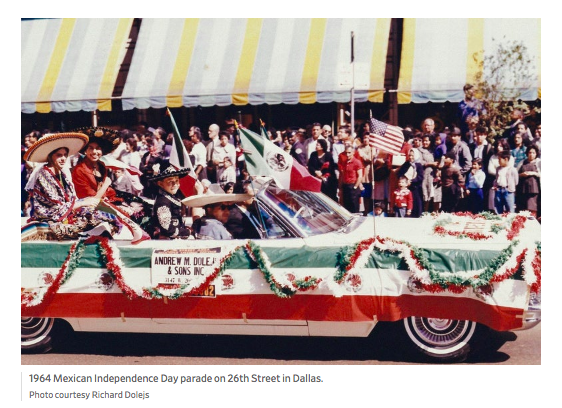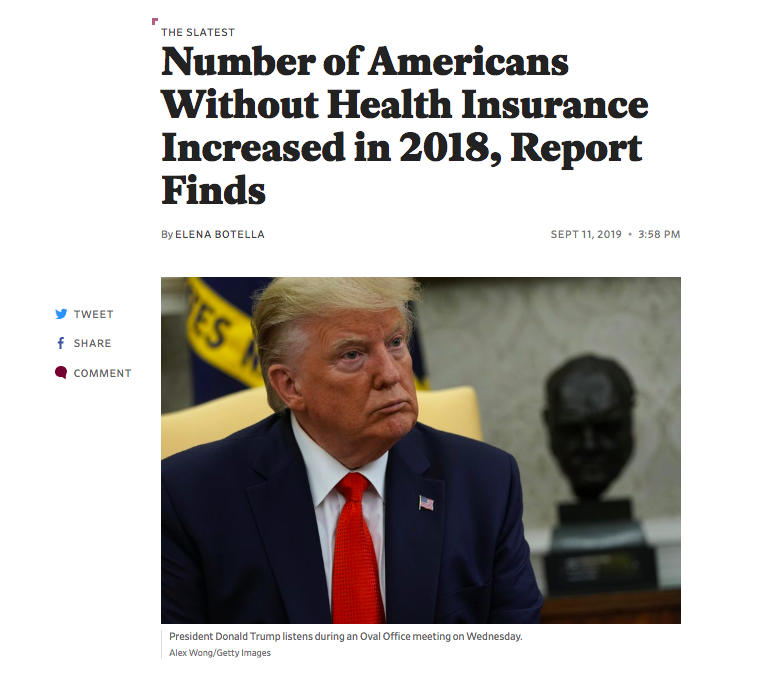For Slate, I reviewed A.K. Sandoval-Strausz’ new book Barrio America. Just decades ago, American cities were in steep decline. Eighteen of the United States’ 25 largest cities were smaller in 1980 than they were in 1950. Grim urban landscapes faced depopulation, high crime rates, municipal bankruptcies, and economic decline. Conventional wisdom says the “creative class,” some combination of bohemian artists followed by white-collar yuppies, deserves credit for reversing the tide, making downtowns attractive, if expensive, places to live, a reversal that dampened the congestion, alienation, and environmental catastrophe of the suburbs. Not so fast, says Sandoval-Strausz.
-
-
Number of Americans Without Health Insurance Increased in 2018
For Slate, I wrote about the growing number of Americans going without health insurance. Immigrant children have been particularly hard-hit by this trend.
-
Department of Homeland Security officials want to check immigrants’ credit scores. That’s a terrible idea for reasons nobody’s talking about.
Since 1882, the United States has denied immigration visas to those who were deemed “unable to take care of himself or herself without becoming a public charge.” This principle has applied also to the renewal of visas of those already legally living and working in the United States, and in some cases, resulting in the deportation of people whose visas were otherwise still valid. For the past twenty years, while nearly all undocumented immigrants and many legally-documented immigrants have been ineligible for a range of public benefits, the only people labeled as “public charges” were those who got more than half of their income from cash-based public benefits. Trump’s Department…


